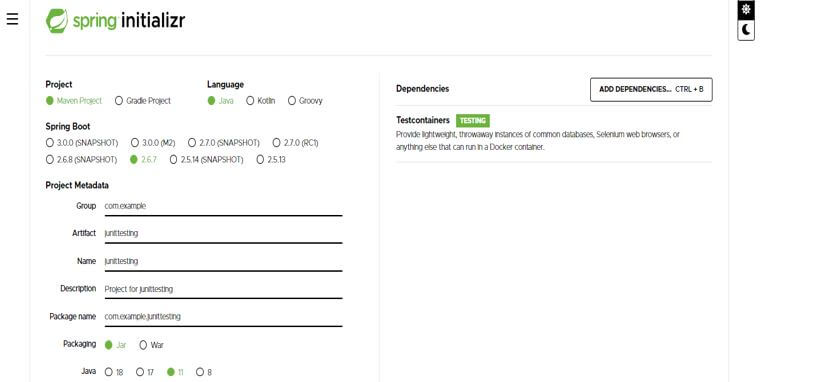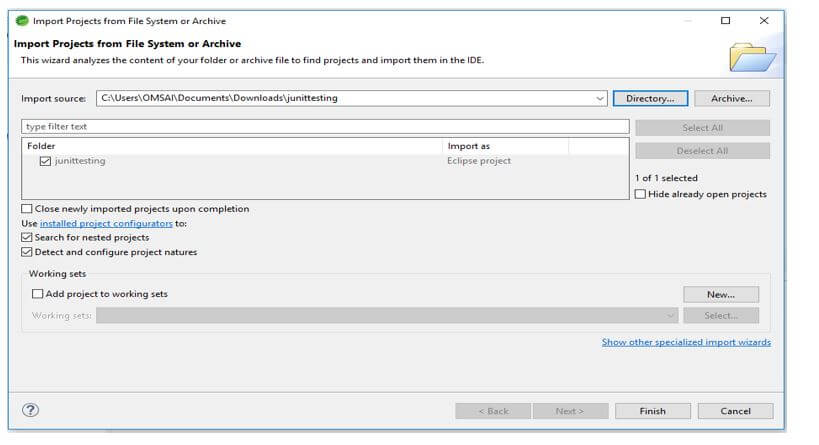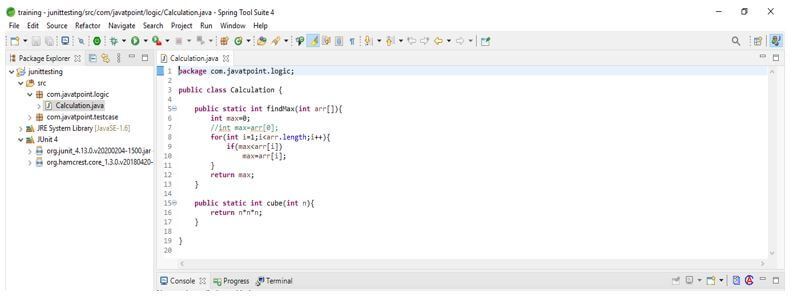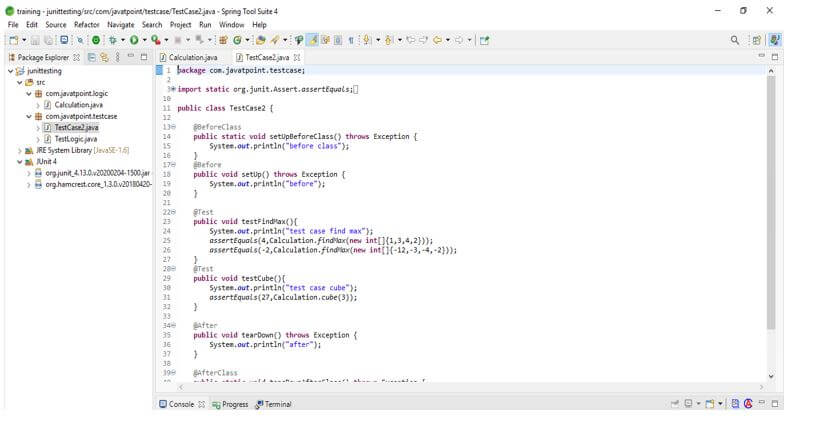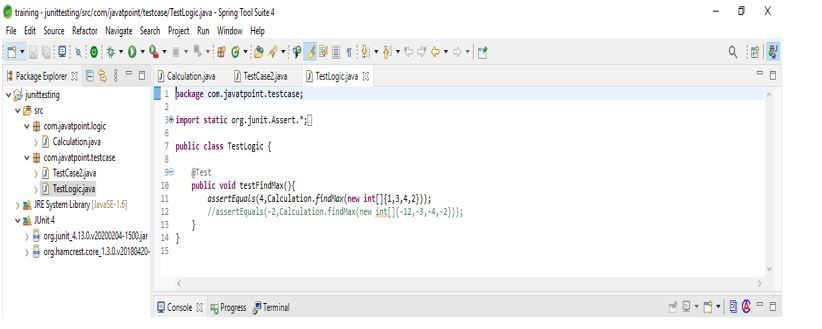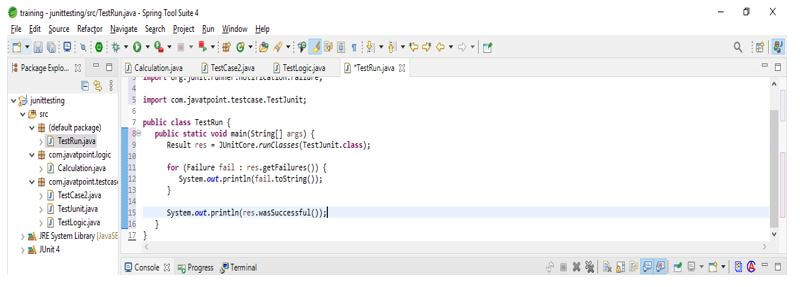Updated February 17, 2023
Introduction to JUnit Testing
JUnit testing is running on java version 8 and above; it will not run on the java version, which is less than version 8. JUnit is a unit testing framework used for java; we can test the application using JUnit. It is beneficial for java developers to run and write the test cases. It is nothing but the architecture, an instance of xUnit.
What is JUnit Testing?
- JUnit is a Java testing framework used to run regression and unit testing on java applications. In addition, it is an open-source framework used in java applications to run repeatable test cases.
- Multiple JUnit testing versions are available, But JUnit 5 will add multiple new features, which was beneficial to testing the java applications.
- It is a method contained in a class that was only used for testing purposes; this is known as a test class. Therefore, to mark JUnit testing as a test method, we need to annotate the same with @test annotation.
Types of JUnit Testing
Below are the types as follows:
- Manual testing
- Automated testing
It is known as manual testing if we execute the test cases manually without using any tool. This testing is not reliable, and it will be time-consuming testing. Therefore, manual testing is not feasible in all applications because it’s time-consuming. Manual testing is a software testing process in which test cases are executed manually. The test cases of the application will be performed by the tester manually as per the user’s perspective. This testing will ensure that the application works correctly, as mentioned in the document.
Automation testing is known as automation testing if we execute the test cases using any tool support. Automation testing is high-speed compared to manual testing and is more reliable. Automation testing is the process that contains testing software to ensure it will meet the exact requirement of users.
Also, it is divided into the following types. It will include unit, system, integration, and acceptance testing. Unit test is used to fix the bugs in the development cycle to save application development costs. The integration test will help the developer understand the code base and quickly enable changes. Unit test is very useful to serve the documentation of the project. In addition, it is beneficial during the application code re-use. We can easily migrate our code and test from one project to a new project.
Unit testing is automated, but we need to test some code manually. At the time of doing automation testing developer will write a section of code for the testing purpose. The application code will automatically use the JUnit testing framework to develop the test cases.
JUnit Testing Framework
JUnit is a testing framework of regression used by developers to implement unit testing in java to increase the speed of programming and code quality.
We can easily integrate the JUnit framework by using the following tools:
- Ant
- Eclipse
- Maven
Below is the annotation which was used in a JUnit testing framework as follows:
- @Test: This annotation will specify that it will be a test method. This annotation is used for testing purposes.
- @Test (timeout=1000): This annotation will determine that the test method will be failed if it takes longer than 1000 milliseconds.
- @BeforeClass: This annotation will decide that the process will be invoked only once before starting all the testing.
- @After: This annotation will select that method will be invoked after every test.
- @AfterClass: This annotation will specify that method will be invoked at a single time after finishing all the test cases.
Below is the feature of the JUnit test framework as follows:
Fixtures are an essential feature of the JUnit testing framework:
- Test suites
- Fixtures
- JUnit classes
- Test runners
Below are the classes of the JUnit framework used for writing the JUnit test cases.
- Assert
- TestCase
- TestResult
Below is the example of the JUnit testing framework as follows:
1. In the first step, we create the project template of the JUnit testing framework example.
We provide project group names as com. Examples are artifact names such as JUnit testing, project names such as JUnit testing, and selected java version as 8. In addition, we are defining the version of spring boot as 2.6.7.
Group – com.example Artifact name – JUnittesting
Name – JUnittesting Spring boot – 2.6.7
Project – Maven Java – 11
Package name – com.example.JUnittesting
Project Description – Project for JUnittesting
2. In this step, we extract the downloaded project and open the same by using the spring tool suite.
In the below example, we can see that we have extracted the project. Then we are opening the same by using the spring tool suite.
3. In this step, we check all project structures and files.
In the below example, we can see the structure of the framework example.
4. In this step, we are writing the program code and the logic of the program is as follows.
5. After writing the test cases in this step, we run our application using the JUnit test.
JUnit Test Runners
JUnit test runner class extends the JUnit abstract class and its related JUnit test cases. Therefore, we are developing the abstract method using the JUnit test runner method.
The JUnit test runner is used to execute the test cases.
Below is an example that shows JUnit test runners as follows:
Code:
public class TestRun {
public static void main(String[] args) {
Result res = JUnitCore.runClasses (TestJUnit.class);
{
System.out.println (fail.toString ());
}
System.out.println (res.wasSuccessful ());
}
}Output:
Conclusion
The JUnit testing is a method contained in a class that was only used for testing purposes; this is known as a test class. It runs on java version 8 and above; it will not run on the java version, which is less than version 8.
Recommended Articles
This is a guide to JUnit Testing. Here we discuss the introduction, types of JUnit testing, framework, and runners. You may also have a look at the following articles to learn more –


